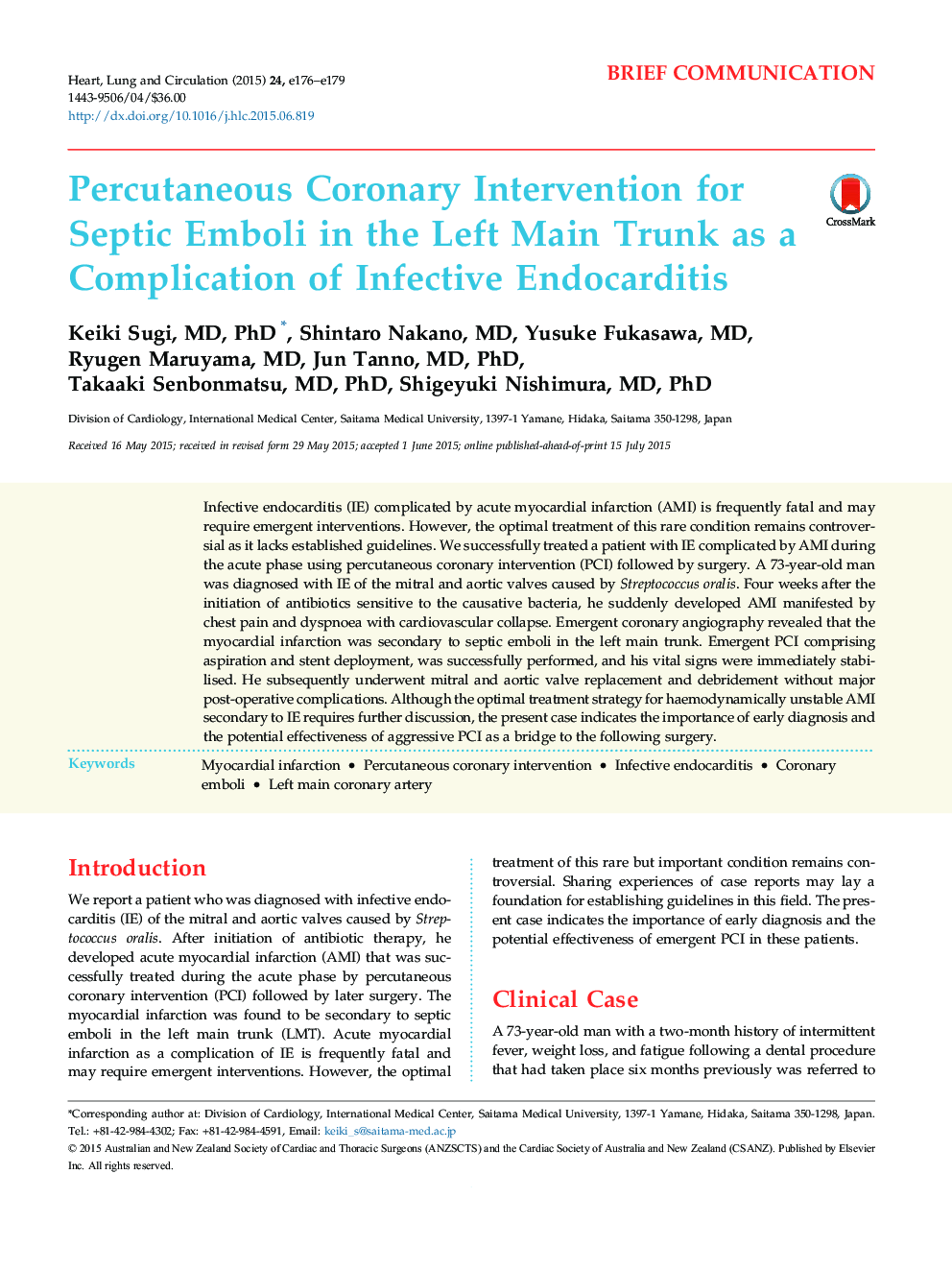| Article ID | Journal | Published Year | Pages | File Type |
|---|---|---|---|---|
| 2917392 | Heart, Lung and Circulation | 2015 | 4 Pages |
Infective endocarditis (IE) complicated by acute myocardial infarction (AMI) is frequently fatal and may require emergent interventions. However, the optimal treatment of this rare condition remains controversial as it lacks established guidelines. We successfully treated a patient with IE complicated by AMI during the acute phase using percutaneous coronary intervention (PCI) followed by surgery. A 73-year-old man was diagnosed with IE of the mitral and aortic valves caused by Streptococcus oralis. Four weeks after the initiation of antibiotics sensitive to the causative bacteria, he suddenly developed AMI manifested by chest pain and dyspnoea with cardiovascular collapse. Emergent coronary angiography revealed that the myocardial infarction was secondary to septic emboli in the left main trunk. Emergent PCI comprising aspiration and stent deployment, was successfully performed, and his vital signs were immediately stabilised. He subsequently underwent mitral and aortic valve replacement and debridement without major post-operative complications. Although the optimal treatment strategy for haemodynamically unstable AMI secondary to IE requires further discussion, the present case indicates the importance of early diagnosis and the potential effectiveness of aggressive PCI as a bridge to the following surgery.
